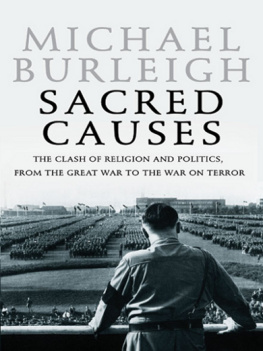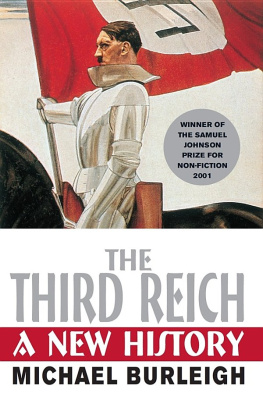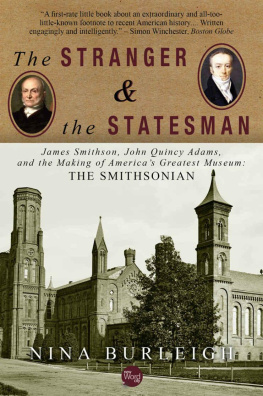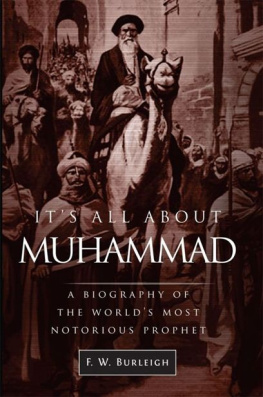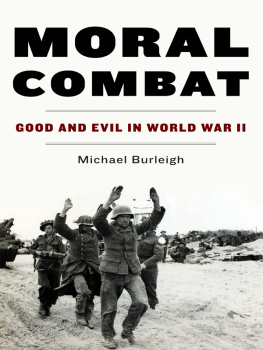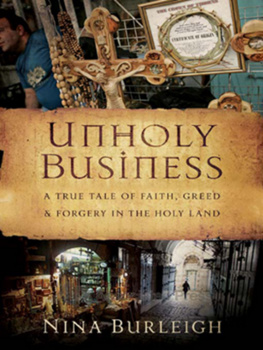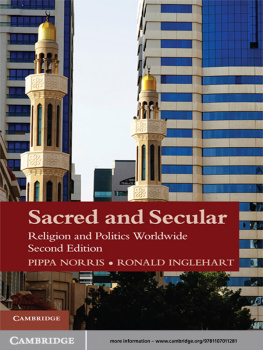O weariness of men who turn from GOD
To the grandeur of your mind and the glory of your action,
To arts and inventions and daring enterprises,
To schemes of human greatness thoroughly discredited
Plotting of happiness and flinging empty bottles,
Turning from your vacancy to fevered enthusiasm
For nation or race or what you call humanity
Thomas Stearns Eliot, Choruses from The Rock
Imagine theres no heavenIts easy if you try.
No hell below us,
Above us only sky.
Imagine all the people
Living for today.
Imagine theres no countriesIt isnt hard to do.
Nothing to kill or die for,
And no religion too.
Imagine all the people
Living life in peace.
John Lennon, Imagine
the incorruptible Professor walked, too, averting his eyes from the odious multitude of mankind. He had no future. He disdained it. He was a force. His thoughts caressed the images of ruin and destruction. He walked frail, insignificant, shabby, miserableand terrible in the simplicity of his idea calling madness and despair to the regeneration of the world. Nobody looked at him. He passed on unsuspected and deadly, like a pest in the street full of men.
Joseph Conrad, The Secret Agent
Be not afraid.
John Paul II
T his is not a history of Christianity, of which there are many, nor a history of modern times, of which Paul Johnson has already written an outstanding example. Rather, the book operates in the middle ground between them, where culture, ideas, politics and religious faith meet in a space for which I cannot find a satisfactory label. Perhaps one should not try. Establishing that space has been one of the major challenges in writing this book. It is easy to recognise what one wants to avoid, for below my rope bridge snap such crocodiles as ecclesiastical history, the history of ideas and theology. The general ambition has been to write a coherent history of modern Europe primarily organised around issues of mind and spirit rather than the merely material, although in no sense do I discount the material as an important factor in history, being as I am inordinately credulous towards simple displays of production statistics.
A previous book, Earthly Powers , began with the political religion created during the Jacobin phase of the French Revolution with its Cults of Reason or the Supreme Being. These were not simply cynical usurpations of religious forms, but were what the Italian thinker Luigi Sturzo in the mid-1920s referred to as the abusive exploitation of the human religious sentiment. Like much earlier attempts to realise heaven on earthvividly described in Norman Cohns classic account of medieval heresies The Pursuit of the Millennium these resulted in hell for many people, as anyone who walks around the sites of Jacobin massacres in the bleak and depopulated Vende can readily establish. This dystopian strain recurred in various guises throughout the nineteenth century, whether in the crackbrained schemes of Auguste Comte or Charles Fourier, the moral insanity of Russian nihilists, or the scientific socialism of Marx and Engels, which was morally insane in other ways. Although Christianity was an integral aspect of many early socialist movementsand in Britain remains so to this dayin general the Churches arranged themselves on the side of conservatism, partly as a result of their traumatic experiences at the hands of democratic mobs in revolutionary France and elsewhere.
This alliance of throne and altar duly broke down as the temporal power of the Churches was challenged by nation states which vied for ultimate human loyalties. A succession of popes, more or less gifted in public diplomacy, doggedly tried to shore up their powers in the face of this assault, whether from the combination of liberals and the reactionary conservative Bismarck in Germany, or from the anticlerical zealots of the French Third Republic. Meanwhile many of the Protestant Churches feebly accommodated themselves to the latest secular ideologies such as nationalism and scientism. These conflicts took place in conjunction with a broader series of changesfor which the label secularisation is unsatisfactorywhereby science, progress, morality, money, culture, humanity and even sport became objects of devotion and refocused religiosity. By the end of the century, when God was invoked by all sides in a catastrophic world war, the strange gods of Bolshevism, Fascism and Nazism were already discernible as alternative objects of religious devotion, those political religions being the initial focus of this book.
Sacred Causes begins amid the terrible trauma of the Great War, the shock that reverberated throughout the first half of the twentieth century. These were strange times. One of the assassins of the Weimar foreign minister Walter Rathenau, who was slain in 1922, claimed that he had been (spiritually) dead since Armistice Day (9 November 1918). Another extreme right-winger, depicted in a post-war play, says: What does it matter whether I die of a bullet at twenty, or of cancer at forty, or of apoplexy at sixty. The people need priests who have the courage to sacrifice the bestpriests who slaughter. There were many self-appointed priests (and prophets) in the 1920s, ranging from the strange individuals who briefly cropped up in Weimar Germany (the most successful of whom was Adolf Hitler) to the puritanical sectarians of Bolshevism. Rather than retell the over-familiar story of Fascism, Nazism and Communism, I have tried to evoke their pseudo-religious pathologies, ranging from the Nazis skilful manipulation of such notions as rebirth and awakening to the Bolsheviks bizarre resort to perpetual confession and remorseless search for heretics. Although there were important differences between these totalitarian regimes, they drew from a common well of enthusiasm, and shared such heretical goals (or rather temptations) as fashioning a new man or establishing heaven on earth. They metabolised the religious instinct. The thinkers who first identified and conceptualised these worrying developments lead on to the next part of the story, for many of the most insightful critics of totalitarian political religions came from a religious background, whether the Catholics Luigi Sturzo and Eric Voegelin, the Orthodox Nikolai Berdyaev, or the Protestants Frederick Voigt and Adolf Keller.
The complex responses of the Churches to these challenges are a major concern of this book. While how a national Church reacted certainly requires comment, it is also the case that these were international institutions, so that whenever one writes that the Catholic Church did this or that, this generalisation does not hold, for example, for Britain, the US, Africa or the whole of Central and Latin America. Indeed, international events are indispensable for understanding this subject. The general predisposition of the Churches towards authoritarian (rather than totalitarian) regimes in the inter-war period is inexplicable without reference to the anticlerical atrocities that took place in Russia, Spain and Mexicowhat Pius XI called the terrible triangle in direct anticipation of contemporary talk of axes of evil. If one wants a sense of the sort of polity the inter-war Church supported, then it is a matter of looking at Austria, Ireland, and Portugal, rather than Fascist Italy or Nazi Germany, although again British or US Catholics were perfectly at home in their respective democracies regardless of their external sympathies in particular conflicts. Moving on to the period of the Second World War, I have tried to treat Pius XII in a historical way, which means giving him credit for one of the most penetrating intellectual demolitions of Nazismin the 1937 encyclical Mit brennender Sorge and by trying to evoke his personality and world, and hence the options that were realistically open to him as the Church grappled with a continent-wide conspiracy to murder Europes Jews. Very little of the cruderSoviet inspiredblack legend survives close analysis, although legitimate questions remain about his hesitations and tone.

